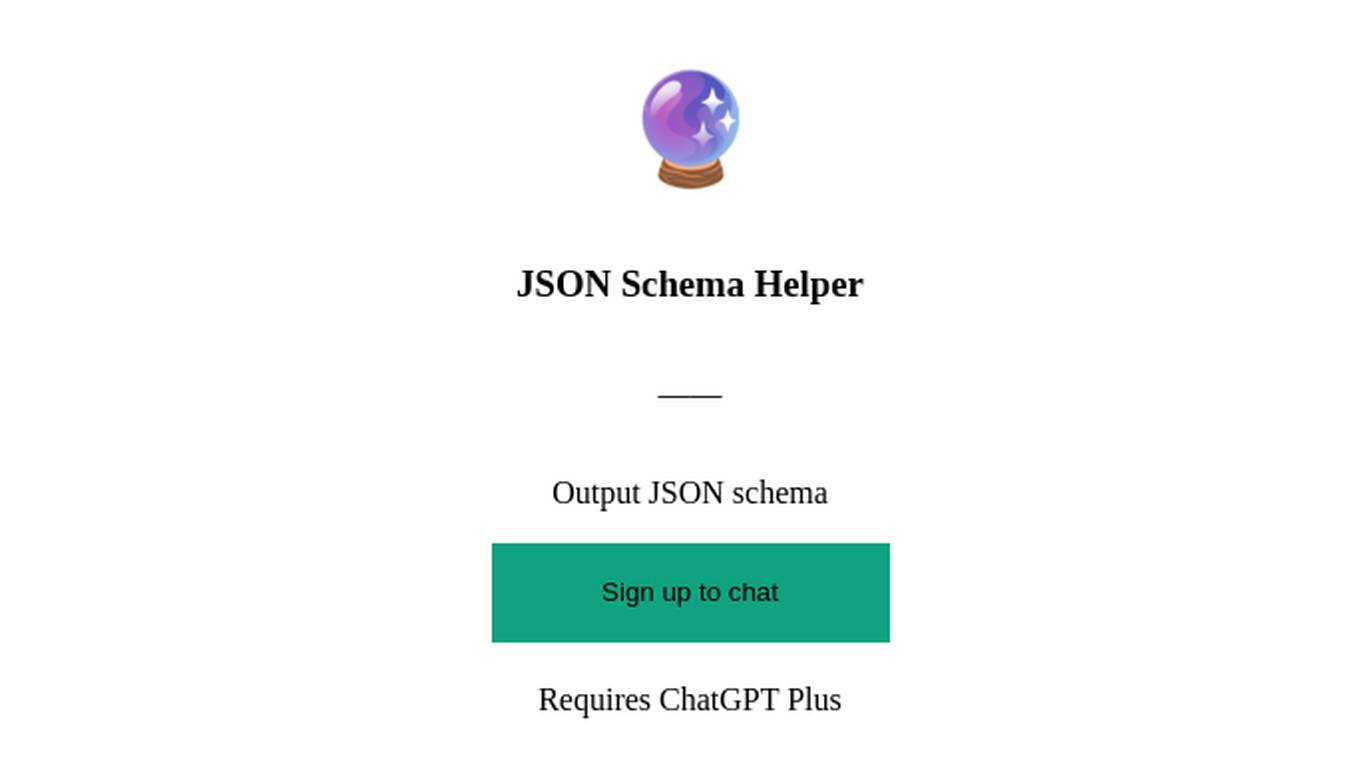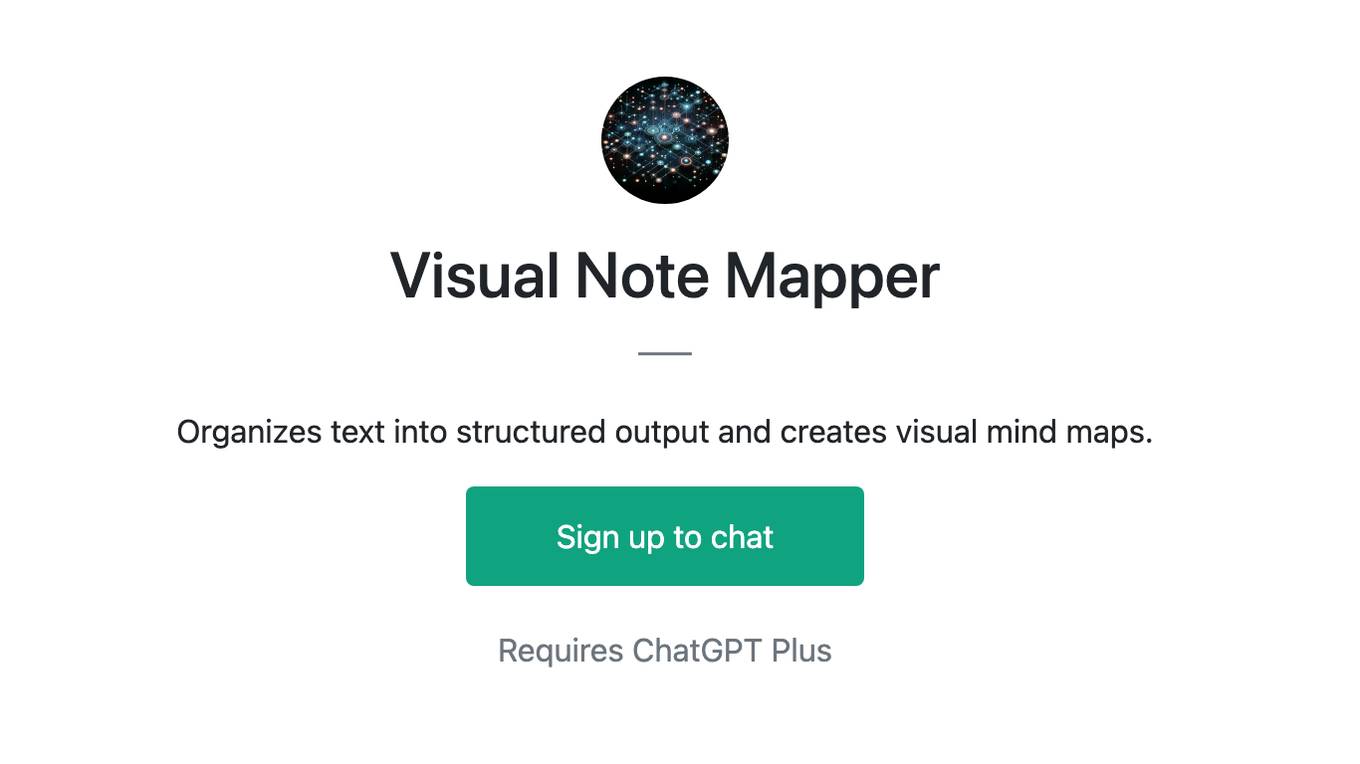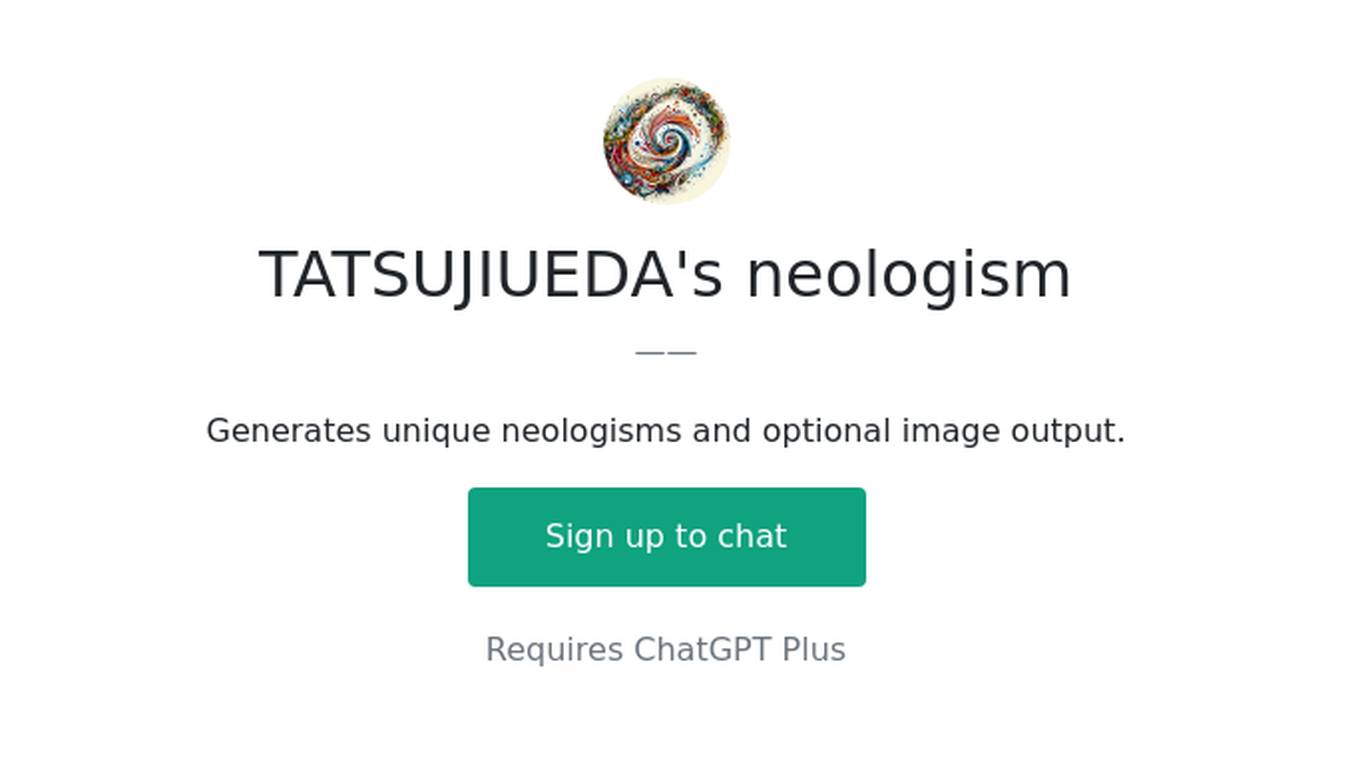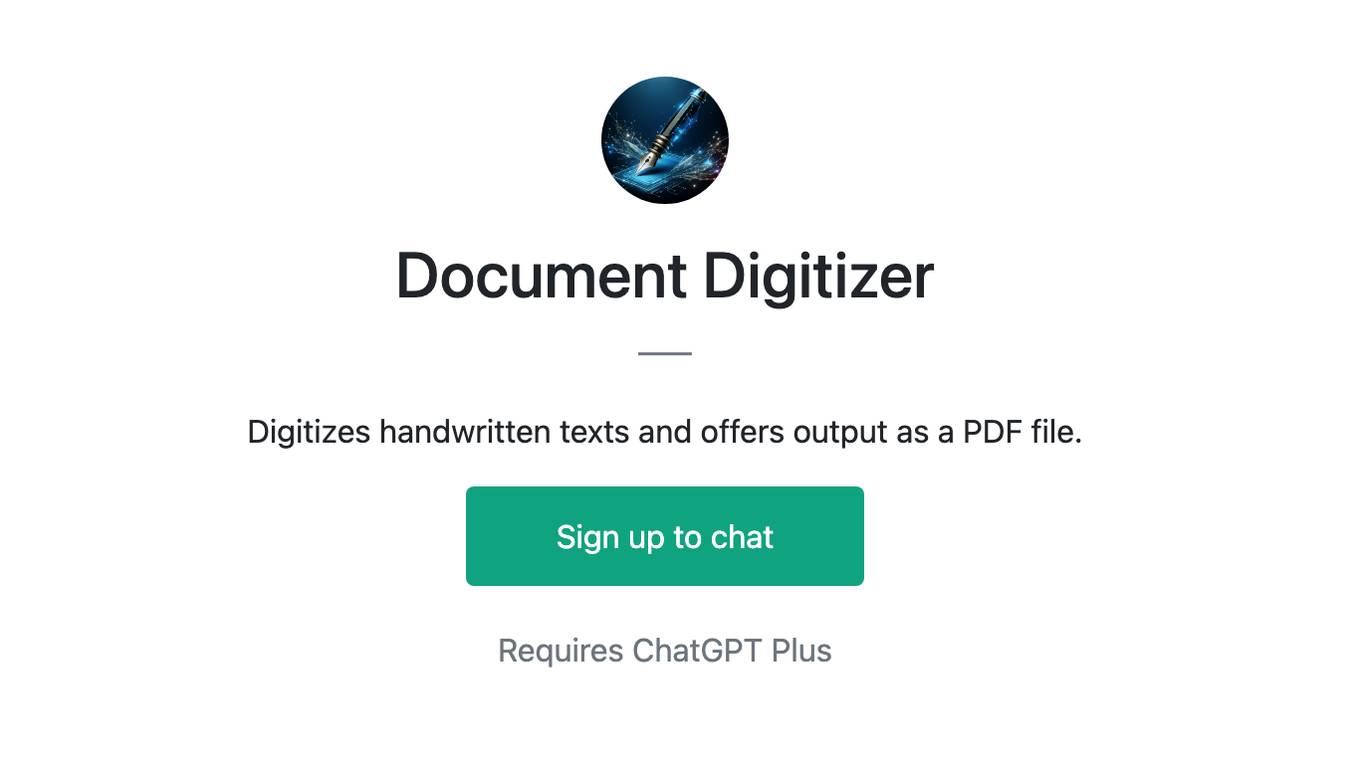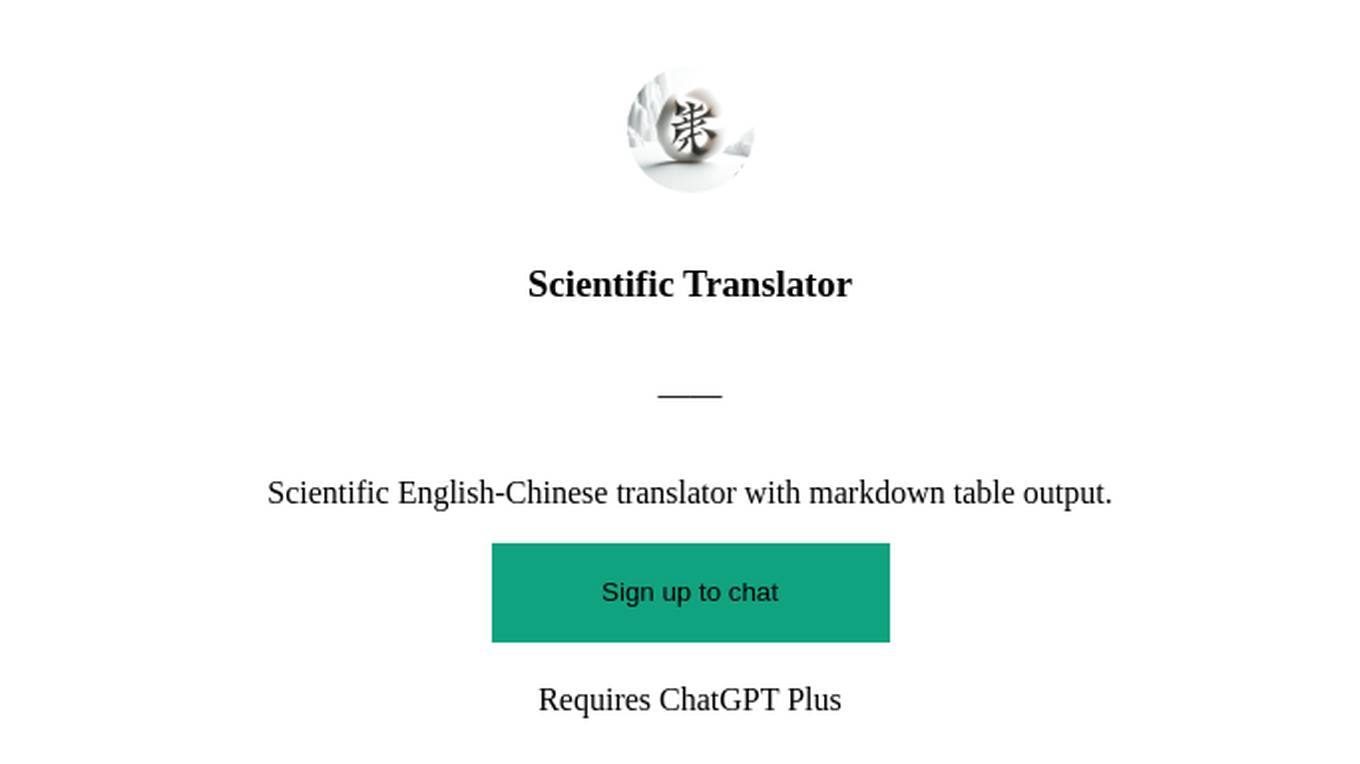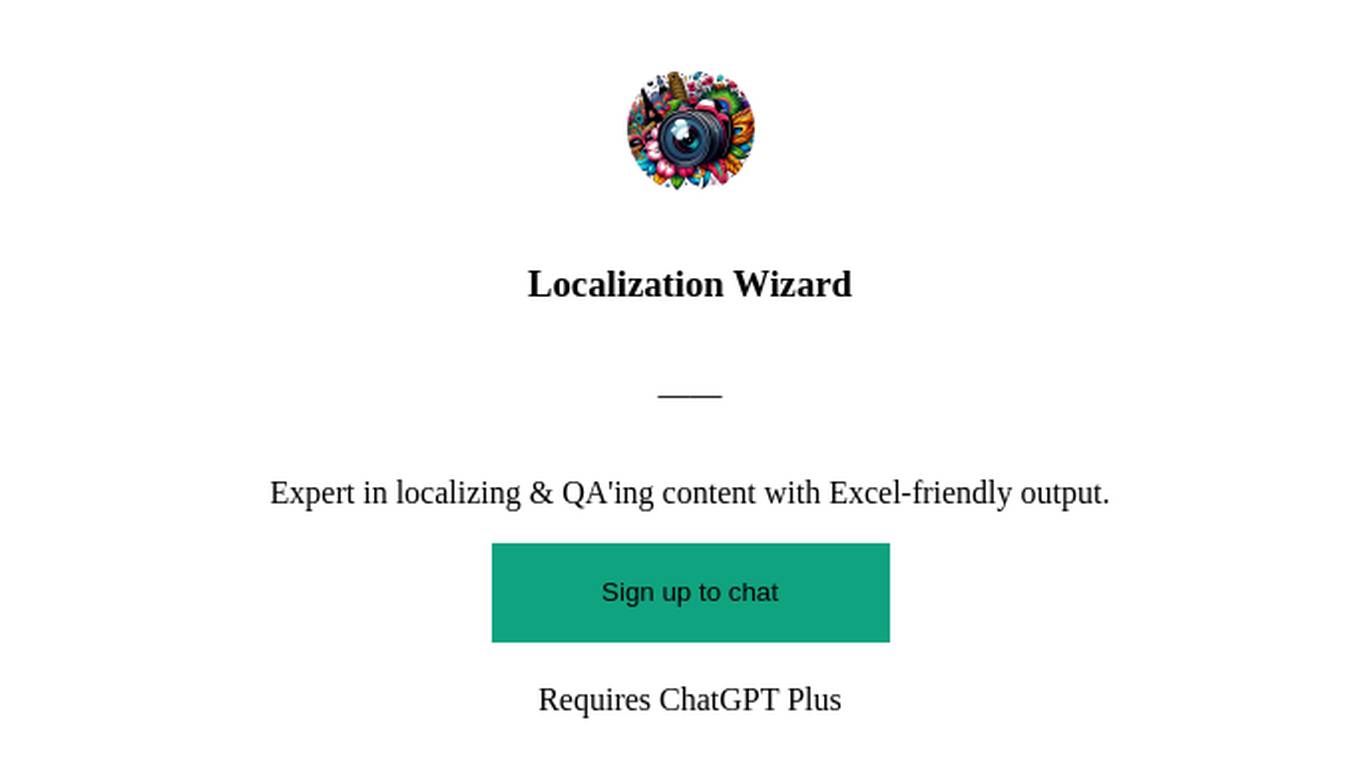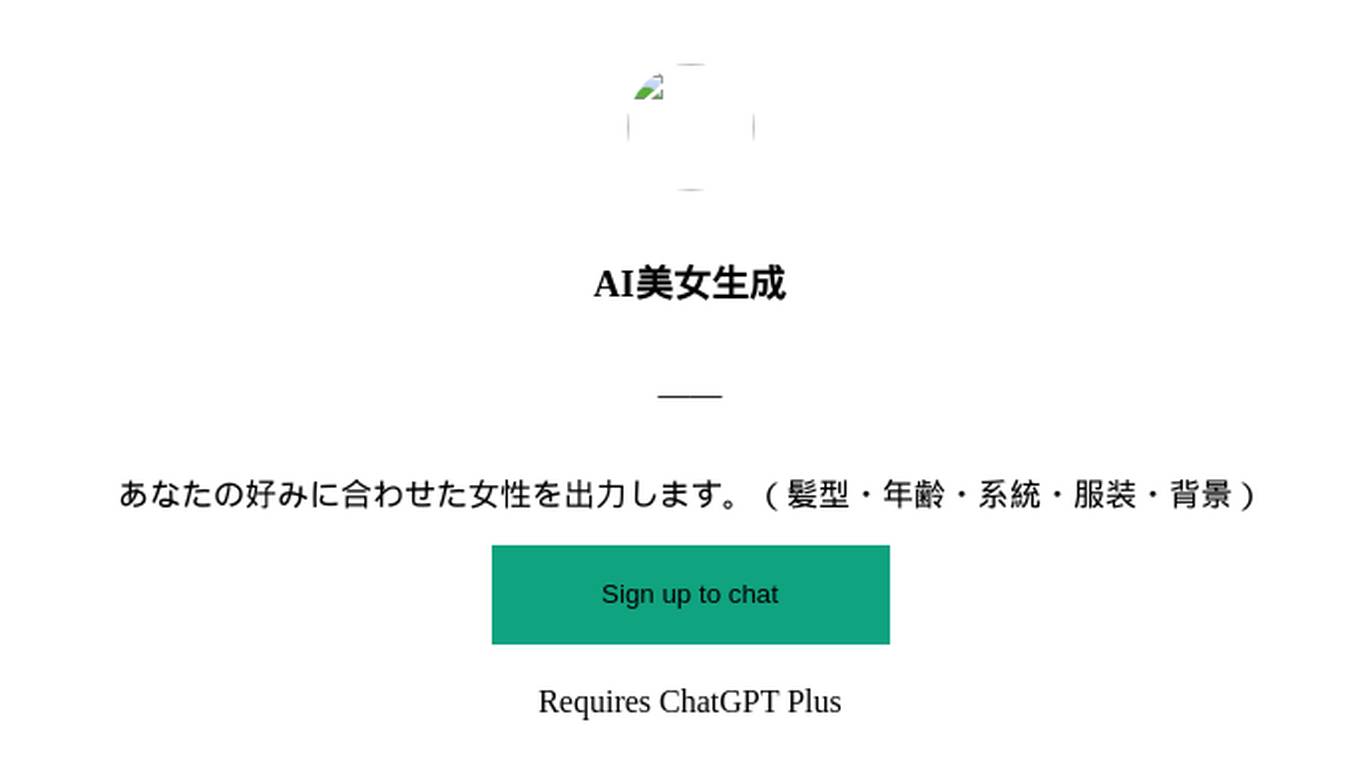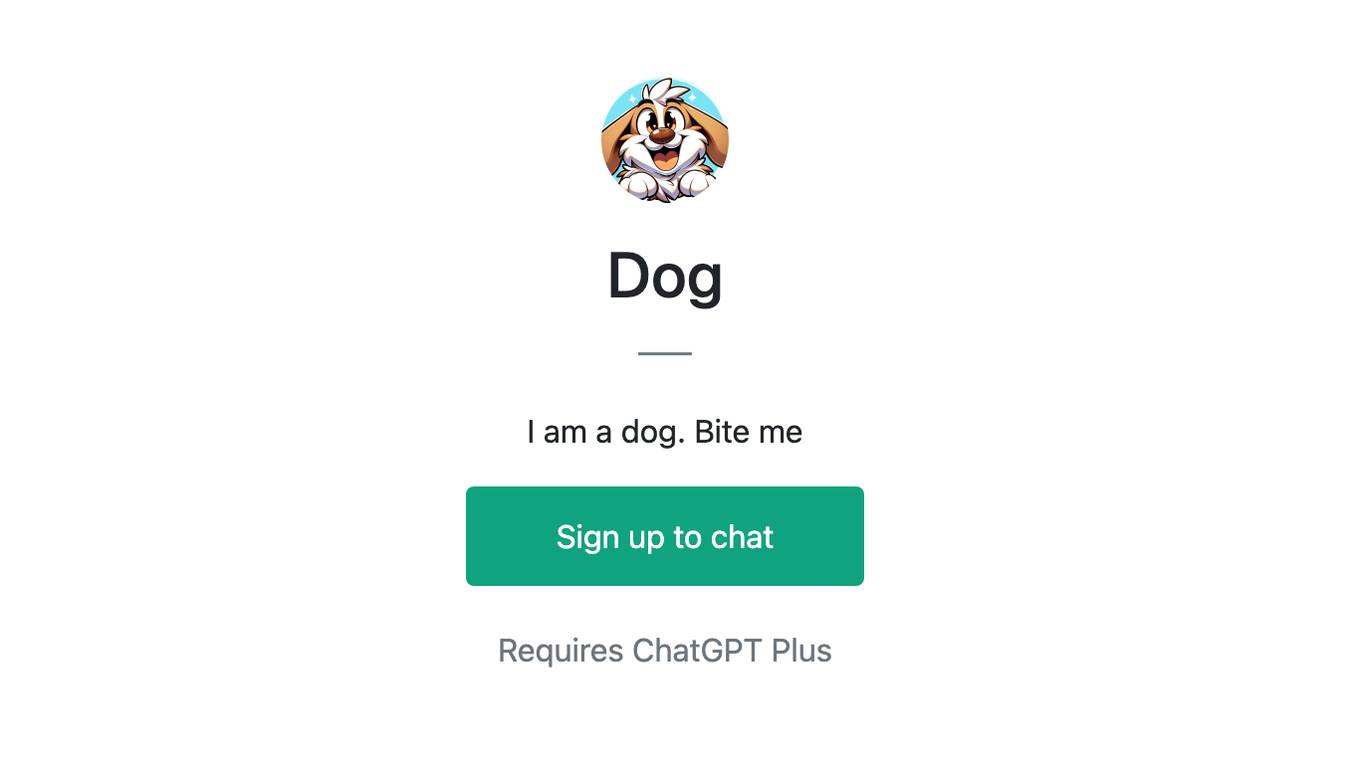Best AI tools for< Output Stats >
20 - AI tool Sites
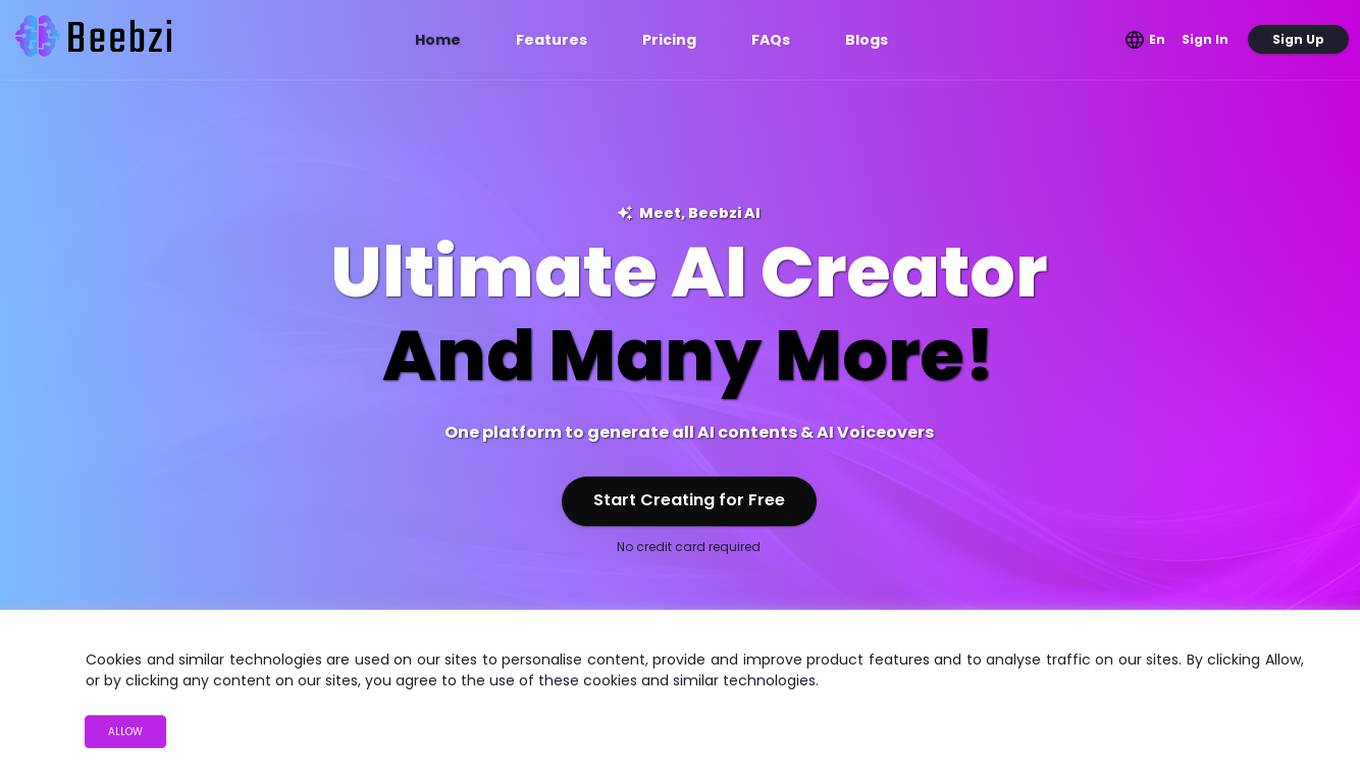
Beebzi.AI
Beebzi.AI is an all-in-one AI content creation platform that offers a wide array of tools for generating various types of content such as articles, blogs, emails, images, voiceovers, and more. The platform utilizes advanced AI technology and behavioral science to empower businesses and individuals in their marketing and sales endeavors. With features like AI Article Wizard, AI Room Designer, AI Landing Page Generator, and AI Code Generation, Beebzi.AI revolutionizes content creation by providing customizable templates, multiple language support, and real-time data insights. The platform also offers various subscription plans tailored for individual entrepreneurs, teams, and businesses, with flexible pricing models based on word count allocations. Beebzi.AI aims to streamline content creation processes, enhance productivity, and drive organic traffic through SEO-optimized content.
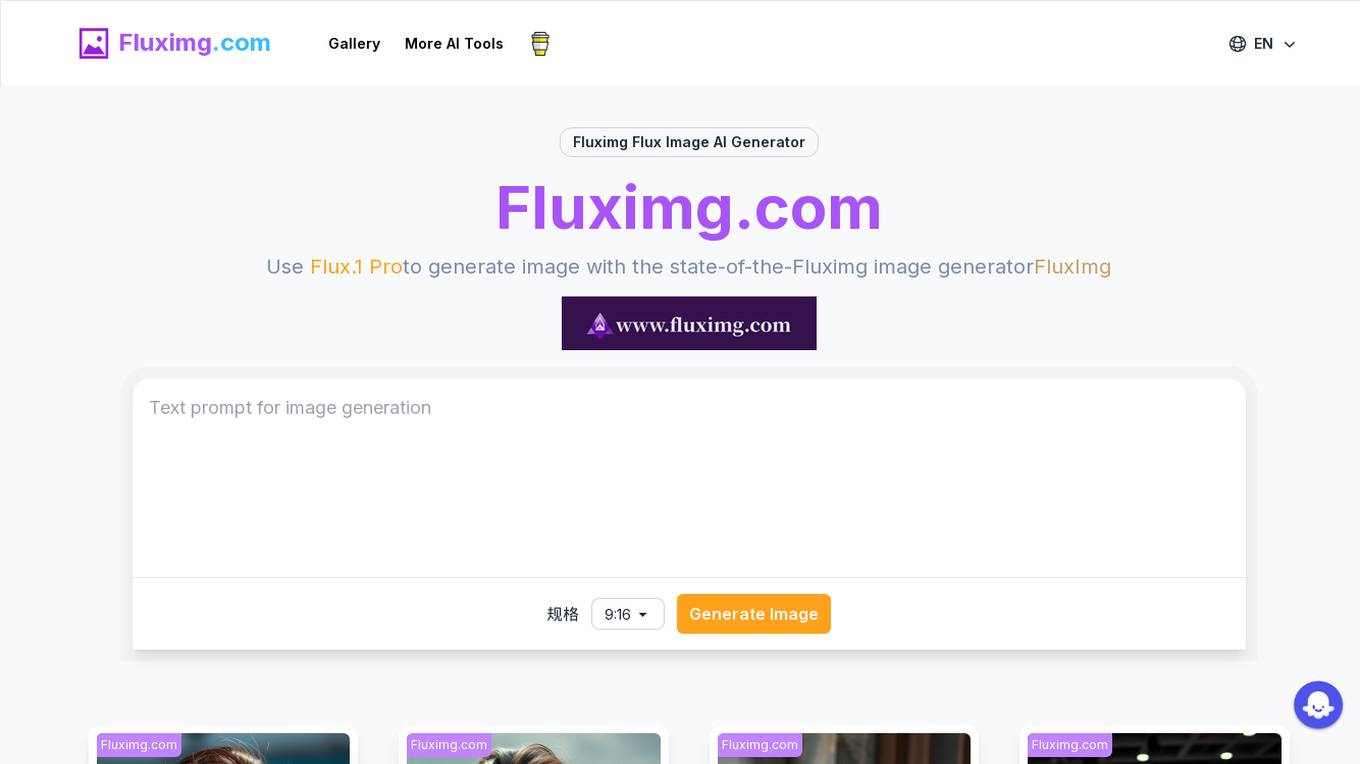
FluxImg AI Image Generator
FluxImg.com is a state-of-the-art AI image generator tool that utilizes advanced AI models to convert text prompts into high-quality, detail-rich images. Users can easily create customized images by inputting descriptive text and further customize the generated images to suit their needs. The tool offers various image size options and supports a wide range of styles and types, including abstract art, realistic scenes, portraits, landscapes, logos, and illustrations. FluxImg.com stands out for its unparalleled image quality, user-friendly interface, and advanced features like Flux.1 Pro and Flux.1 Schnell for enhanced control and rapid iterations.
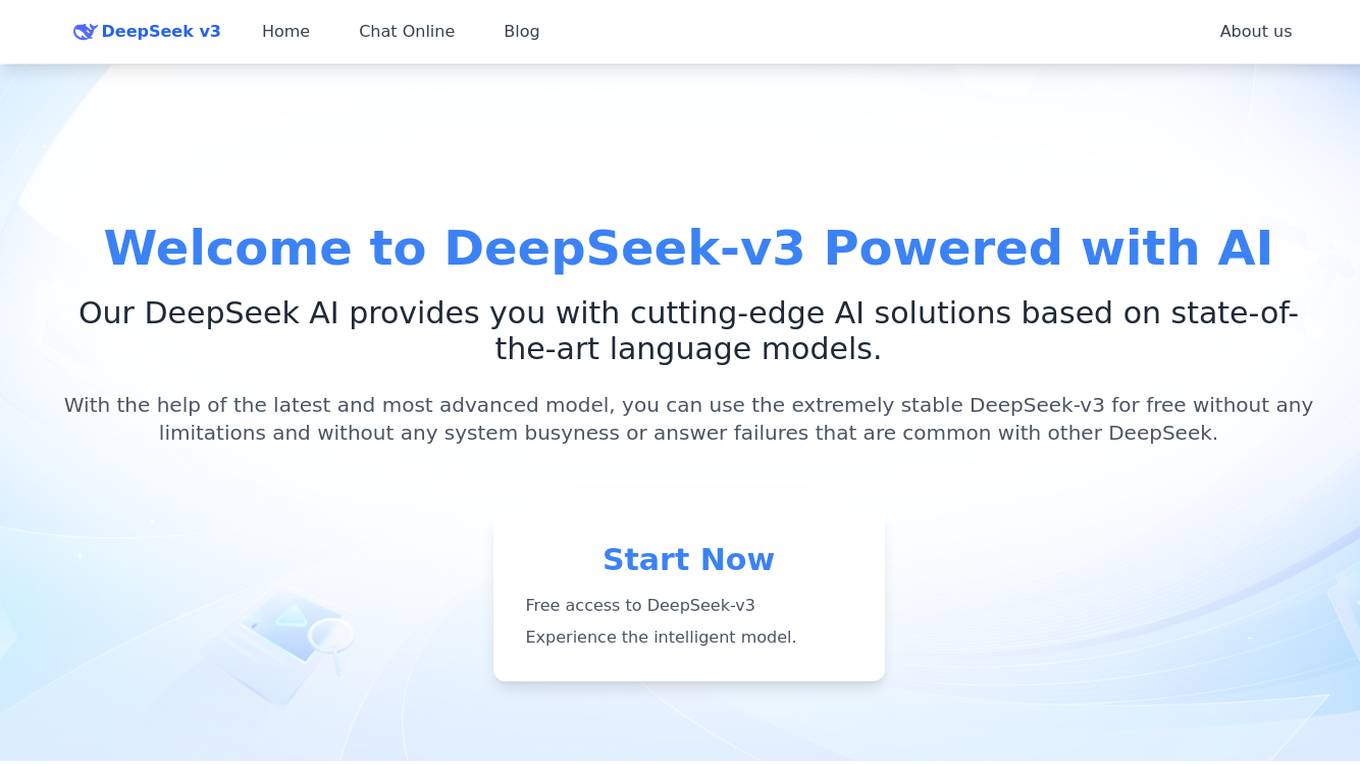
DeepSeek-v3
DeepSeek-v3 is a leading AI model and cutting-edge AI solution that provides users with state-of-the-art language models for free, without limitations or system busyness. It offers stable and efficient output, supports multiple languages and deployment options, and allows users to access cutting-edge AI solutions through a simple three-step process. DeepSeek-v3 is a major breakthrough in speed, performance, and cost-effectiveness compared to previous models, making it a competitive choice for various AI tasks.
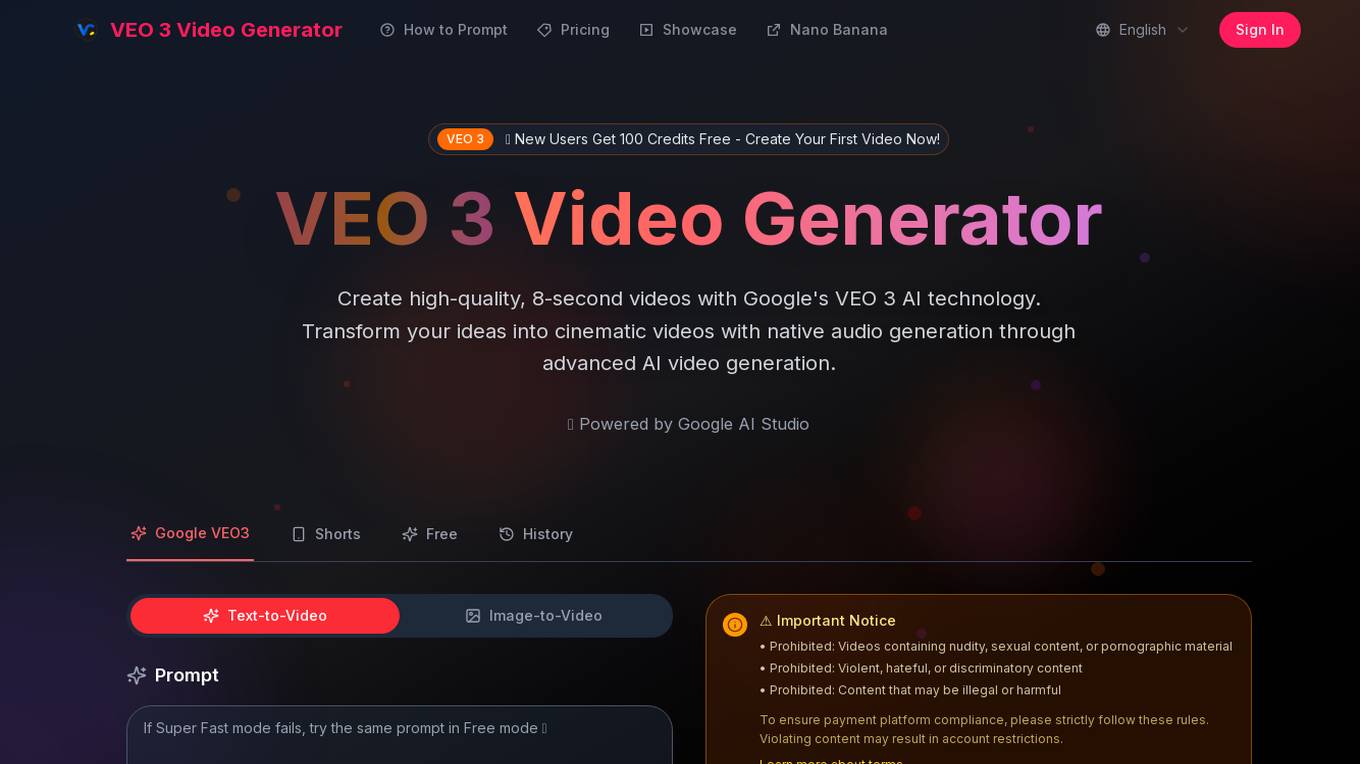
VEO 3 Video Generator
VEO 3 Video Generator is an advanced AI video generator powered by Google AI Studio. It allows users to create high-quality, 8-second videos with native audio generation through advanced AI technology. The tool excels at prompt understanding, cinematic quality output, and natural language processing, making it easy for users to transform their ideas into professional videos without technical expertise.
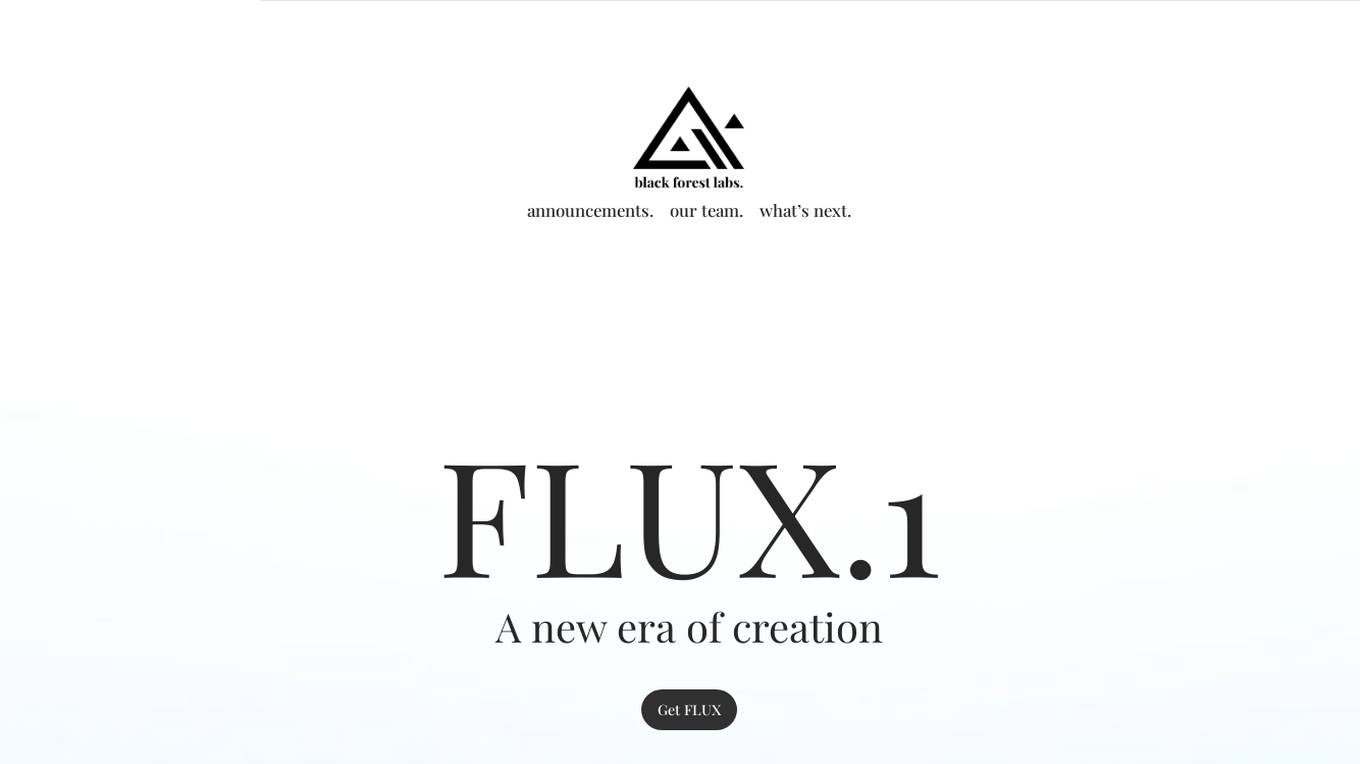
Black Forest Labs - Frontier AI Lab
Black Forest Labs is a cutting-edge AI tool that offers FLUX.1, a state-of-the-art model for image generation and prompt following. The tool provides three distinct variants - FLUX.1 [pro], FLUX.1 [dev], and FLUX.1 [schnell], catering to different user needs. FLUX.1 [pro] is designed for commercial applications, while FLUX.1 [dev] and FLUX.1 [schnell] are more suitable for non-commercial and personal use. The tool is known for its high performance, visual quality, and output diversity, making it a valuable asset for various AI-related tasks.
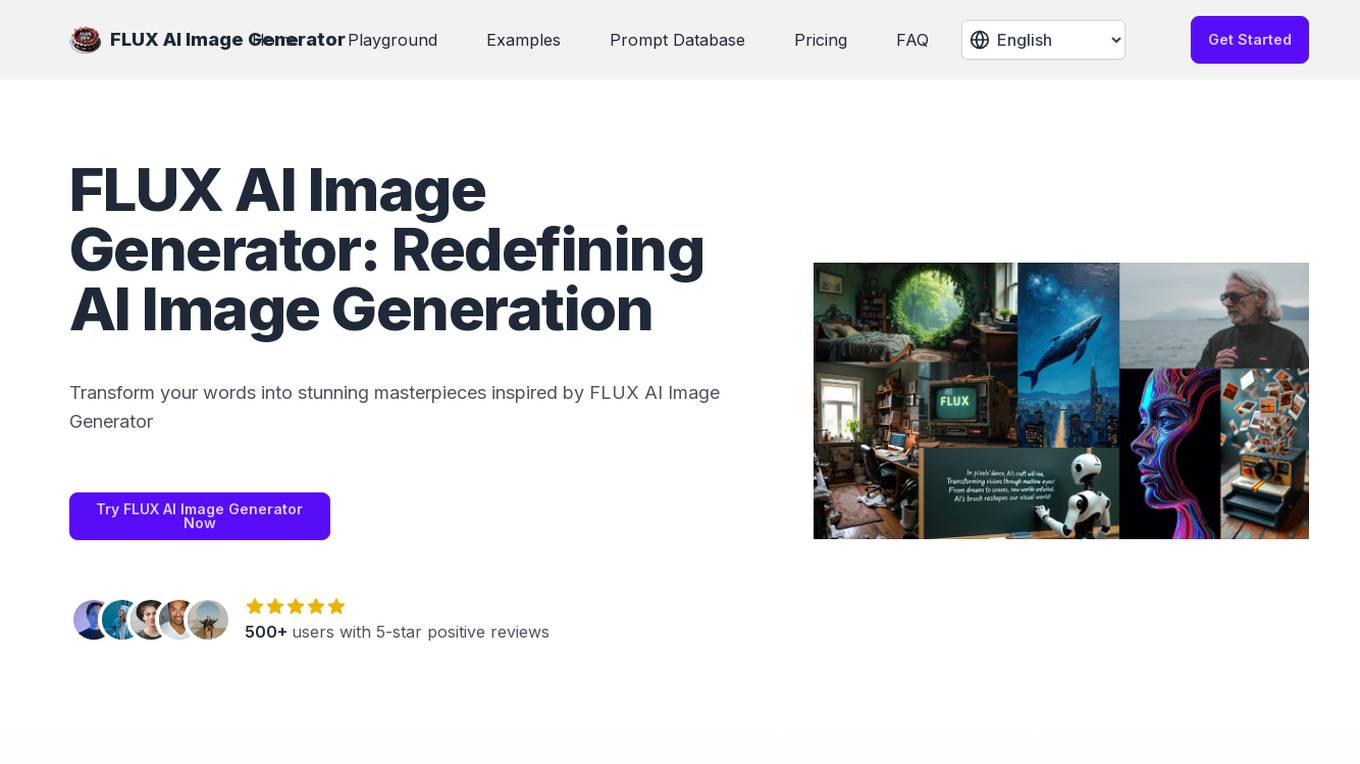
FLUX AI Image Generator
FLUX AI Image Generator is a cutting-edge AI image generation model developed by Black Forest Labs. It offers state-of-the-art performance in prompt following, visual quality, image detail, and output diversity. The application provides multiple model variants, exceptional text rendering capabilities, complex composition mastery, improved hand rendering, and efficient performance. Users can access FLUX AI Image Generator through various platforms and benefit from its open-source availability for research and artistic purposes. The tool is continuously innovating to stay at the forefront of AI image generation technology.

Image To Video
Image To Video is a free AI Image To Video Converter tool that utilizes advanced AI technology to transform static images into dynamic videos with natural motion and transitions. Users can create engaging video content effortlessly using specialized AI Kiss and AI Hug generators for unique animations. The tool offers fast processing, daily free credits, high-quality output, and easy download options, making it ideal for content creators, marketers, and digital artists.
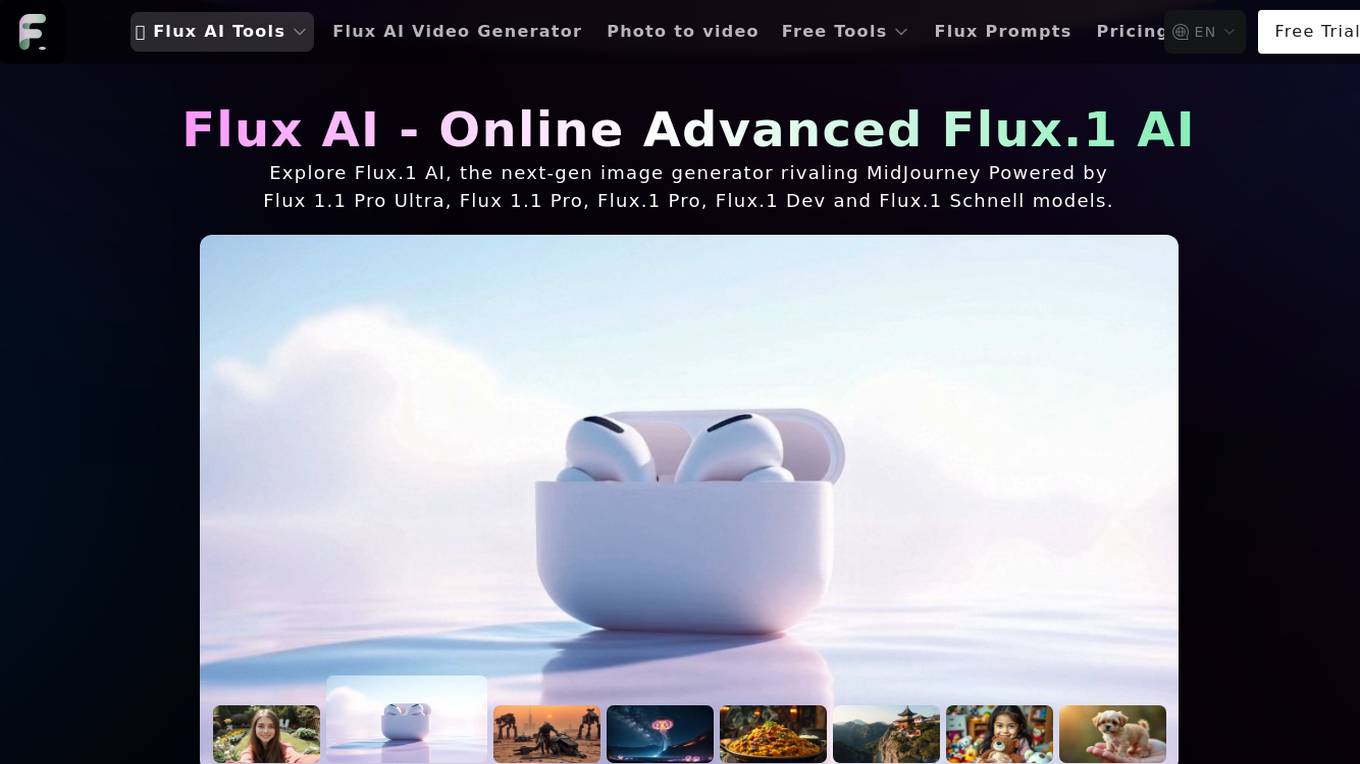
Flux AI
Flux AI is a cutting-edge AI tool that offers a range of advanced features for image and video generation. It provides users with the ability to transform text and images into stunning visuals and videos using state-of-the-art AI models. With customizable styles, instant rendering, and high-quality output, Flux AI empowers users to unleash their creativity and bring their ideas to life with ease. The application also includes tools for image inpainting, image enhancement, and prompt generation, catering to a wide range of creative needs. Whether you're a novice or a professional, Flux AI offers endless possibilities for creating magic in seconds.
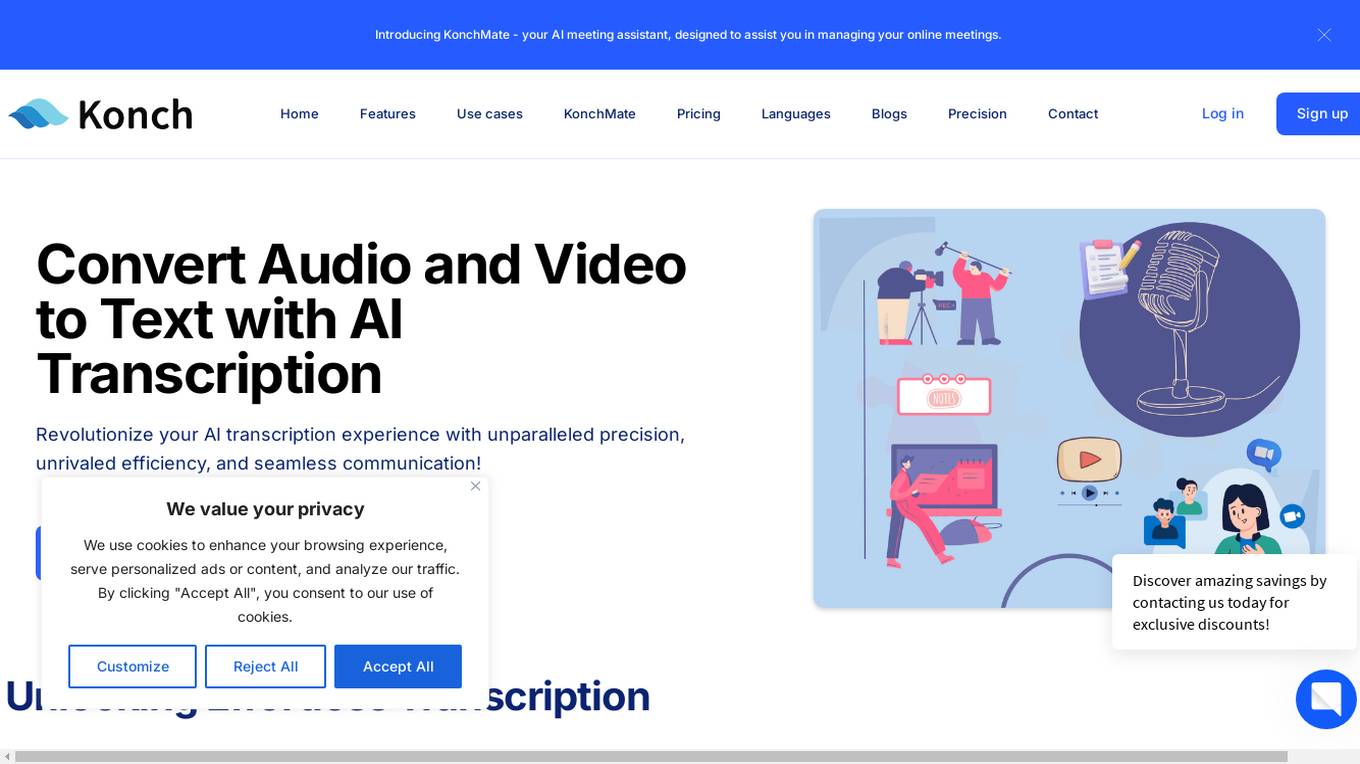
Konch AI
Konch AI is an automated AI transcription service that offers unparalleled precision and efficiency in converting audio and video files to text. It features a state-of-the-art AI technology that swiftly transcribes content, with the option to review and edit the transcripts. Users can also upgrade to Precision for human-reviewed transcripts. KonchMate, the AI meeting assistant, streamlines meeting documentation by capturing, transcribing, editing, and sharing meeting content. The platform supports multiple languages, advanced editing features, and flexible output formats, making it a comprehensive solution for transcription needs.
ChartPixel
ChartPixel is an AI-assisted data analysis platform that empowers users to effortlessly generate charts, insights, and actionable statistics in just 30 seconds. The platform is designed to demystify data and analysis, making it accessible to users of all skill levels. ChartPixel combines the power of AI with domain expertise to provide secure and reliable output, ensuring trustworthy results without compromising data privacy. With user-friendly features and educational tools, ChartPixel helps users clean, wrangle, visualize, and present data with ease, catering to both beginners and professionals.

Lisapet.AI
Lisapet.AI is an AI prompt testing suite designed for product teams to streamline the process of designing, prototyping, testing, and shipping AI features. It offers a comprehensive platform with features like best-in-class AI playground, variables for dynamic data inputs, structured outputs, side-by-side editing, function calling, image inputs, assertions & metrics, performance comparison, data sets organization, shareable reports, comments & feedback, token & cost stats, and more. The application aims to help teams save time, improve efficiency, and ensure the reliability of AI features through automated prompt testing.
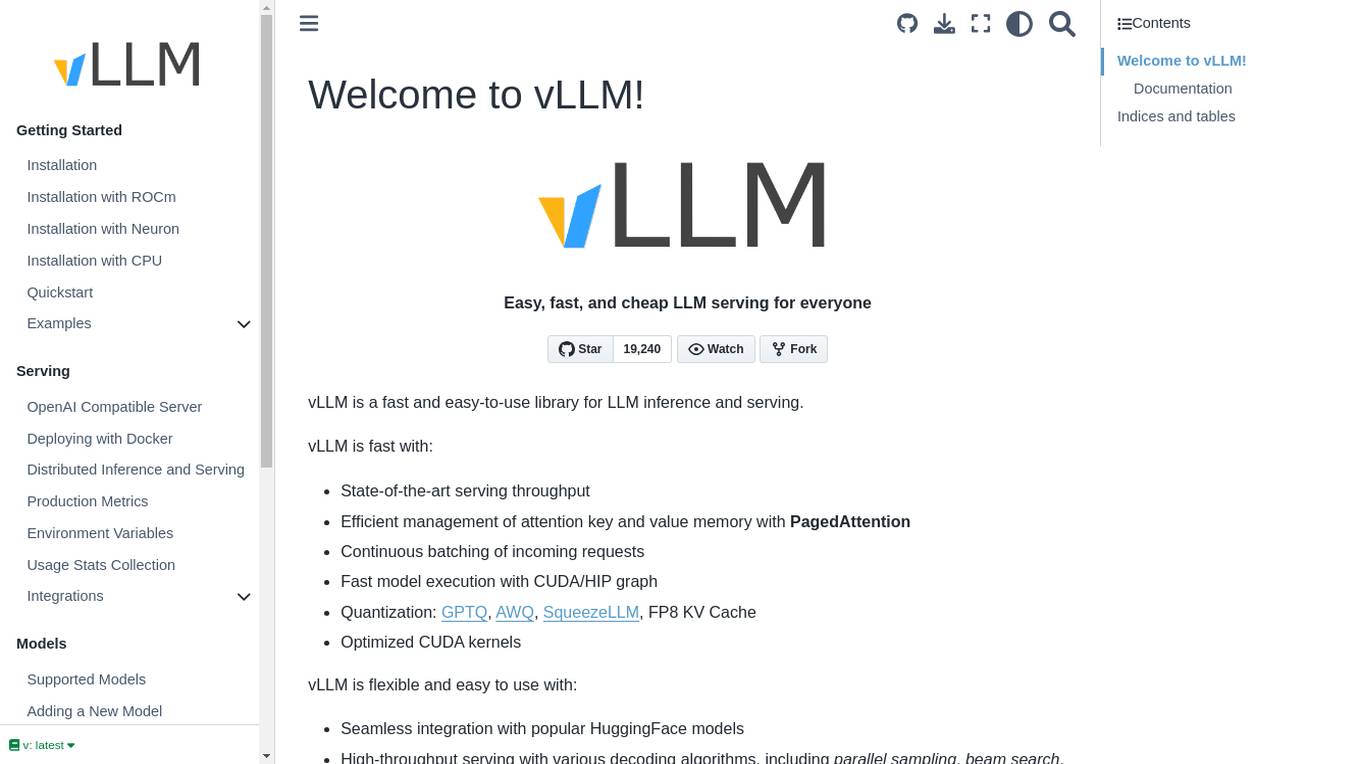
vLLM
vLLM is a fast and easy-to-use library for LLM inference and serving. It offers state-of-the-art serving throughput, efficient management of attention key and value memory, continuous batching of incoming requests, fast model execution with CUDA/HIP graph, and various decoding algorithms. The tool is flexible with seamless integration with popular HuggingFace models, high-throughput serving, tensor parallelism support, and streaming outputs. It supports NVIDIA GPUs and AMD GPUs, Prefix caching, and Multi-lora. vLLM is designed to provide fast and efficient LLM serving for everyone.
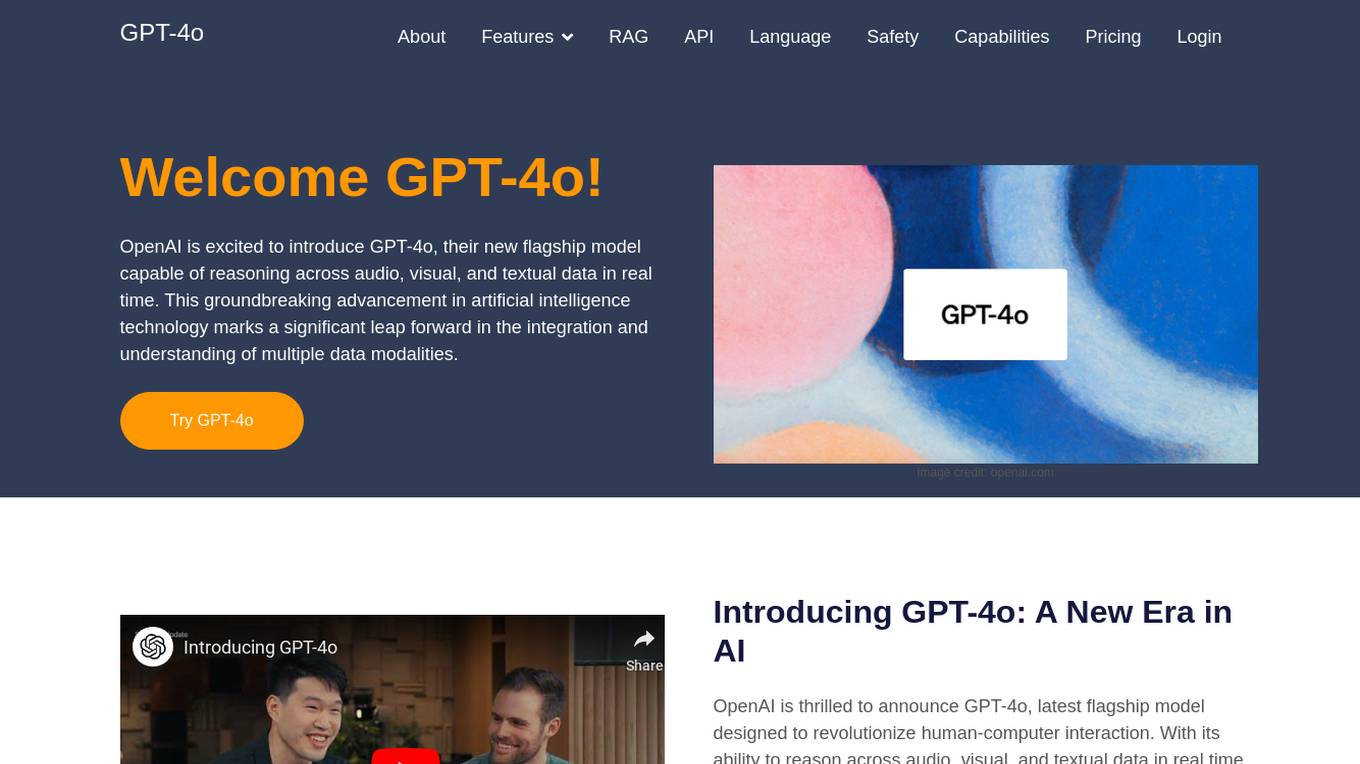
GPT-4o
GPT-4o is a state-of-the-art AI model developed by OpenAI, capable of processing and generating text, audio, and image outputs. It offers enhanced emotion recognition, real-time interaction, multimodal capabilities, improved accessibility, and advanced language capabilities. GPT-4o provides cost-effective and efficient AI solutions with superior vision and audio understanding. It aims to revolutionize human-computer interaction and empower users worldwide with cutting-edge AI technology.
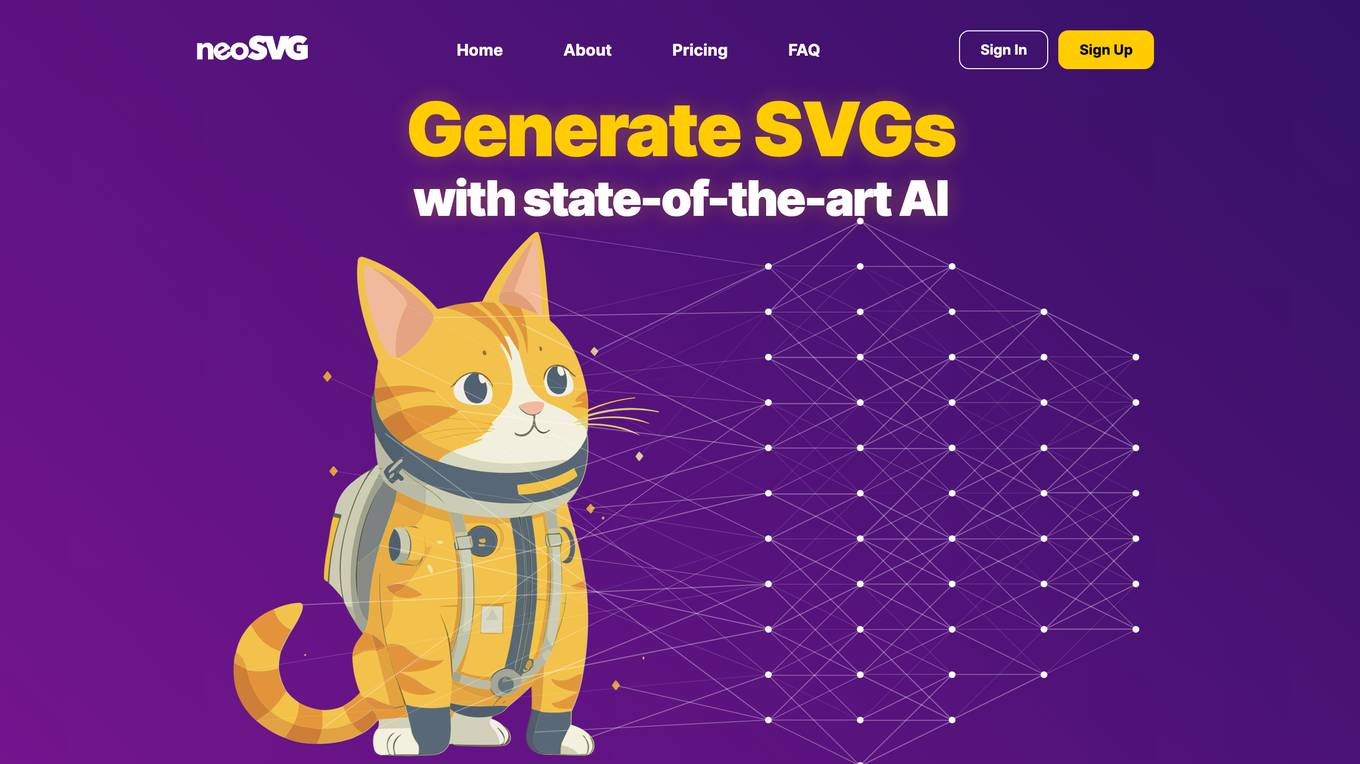
neoSVG
neoSVG is an AI-powered application that allows users to generate scalable vector graphics (SVGs) from simple text prompts. The platform utilizes state-of-the-art AI technology and Bezier curve paths with mathematical rules to create unique and high-resolution vector outputs. Users can create a variety of visuals for web design, mobile apps, print media, AR/VR applications, UI/UX designs, logos, and more. neoSVG aims to provide efficient SVG generation by leveraging powerful servers and continuous research to enhance its AI capabilities.
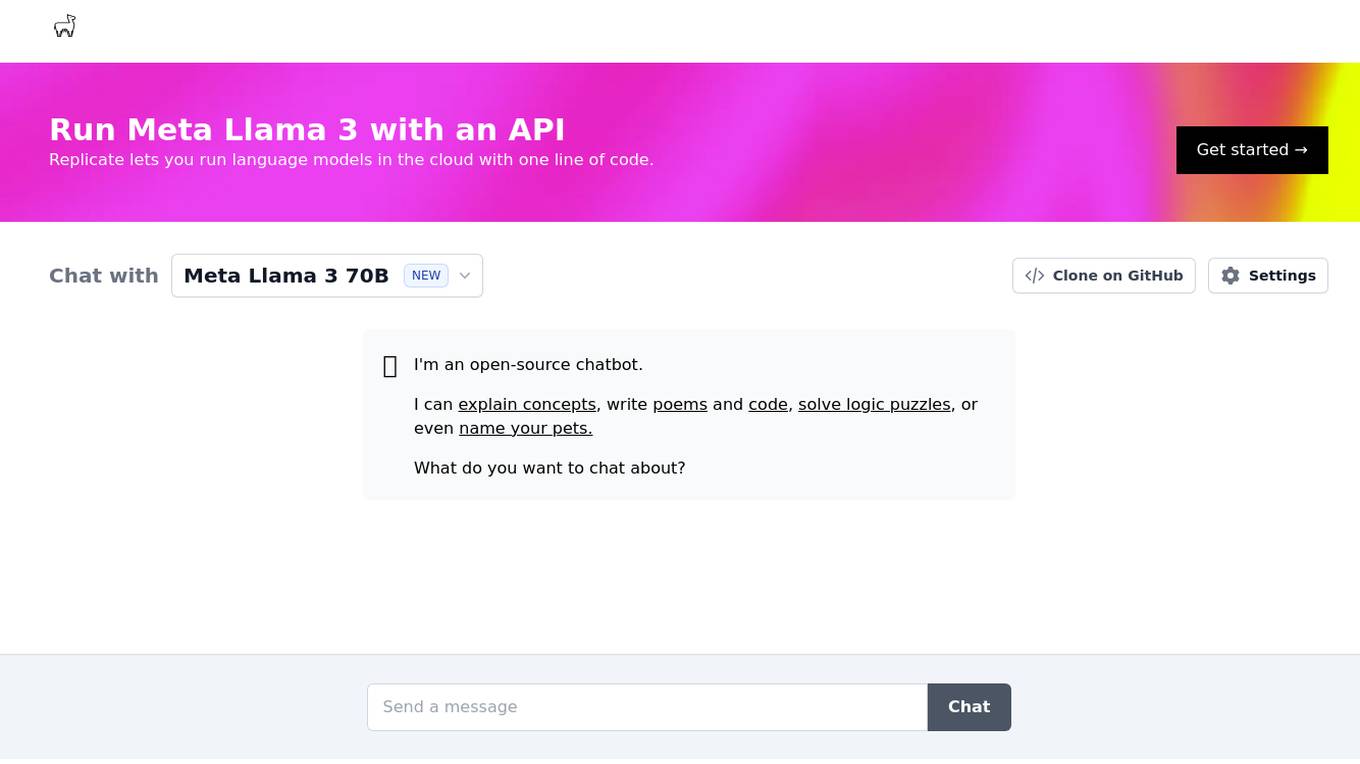
Chat With Llama
Chat with Llama is a free website that allows users to interact with Meta's Llama3, a state-of-the-art AI chat model comparable to ChatGPT. Users can ask unlimited questions and receive prompt responses. Llama3 is open-source and commercially available, enabling developers to customize and profit from AI chatbots. It is trained on 70 billion parameters and generates outputs matching the quality of ChatGPT-4.
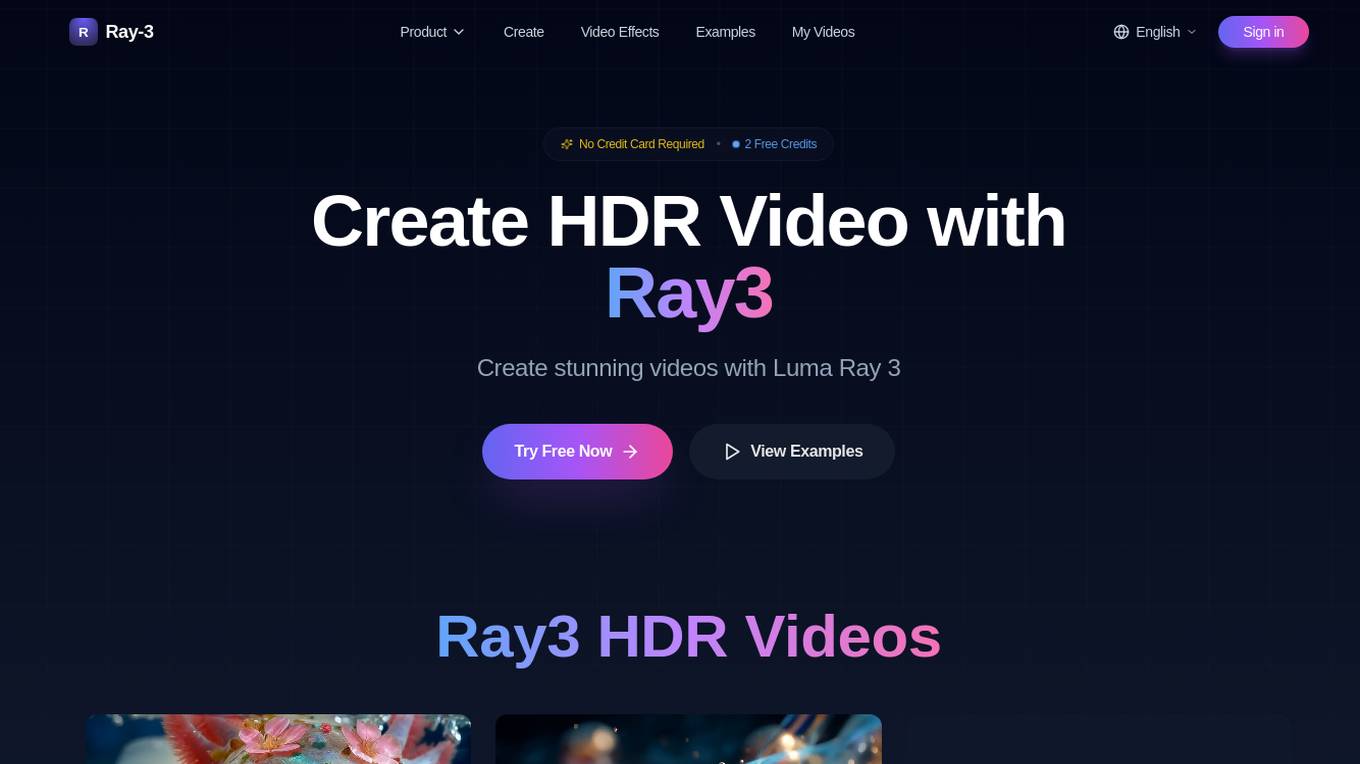
Ray 3
Ray 3 is the first video AI application for reasoning developed by Luma. It offers users the ability to create stunning videos with advanced visual effects and HDR generation. Ray 3 utilizes state-of-the-art visual intelligence to understand user intent, think through concepts, and deliver high-quality video outputs. With features like visual reasoning, 16-bit HDR generation, Draft Mode for faster iteration, and Chain of Thought for interpreting prompts, Ray 3 provides a seamless video creation experience for professionals across various industries.

Output
Output is the ultimate creative software for music makers, offering a range of tools and plugins to supercharge music production. With Output Arcade as the flagship product, musicians can access a powerful sampler and instrument plugin, along with FX plugins and Kontakt Instruments to transform their sound. The platform also introduces AI capabilities through features like Pack Generator, providing cutting-edge software for musicians to enhance their creativity and production workflow. Output aims to simplify the music-making process and empower artists to focus on their craft.
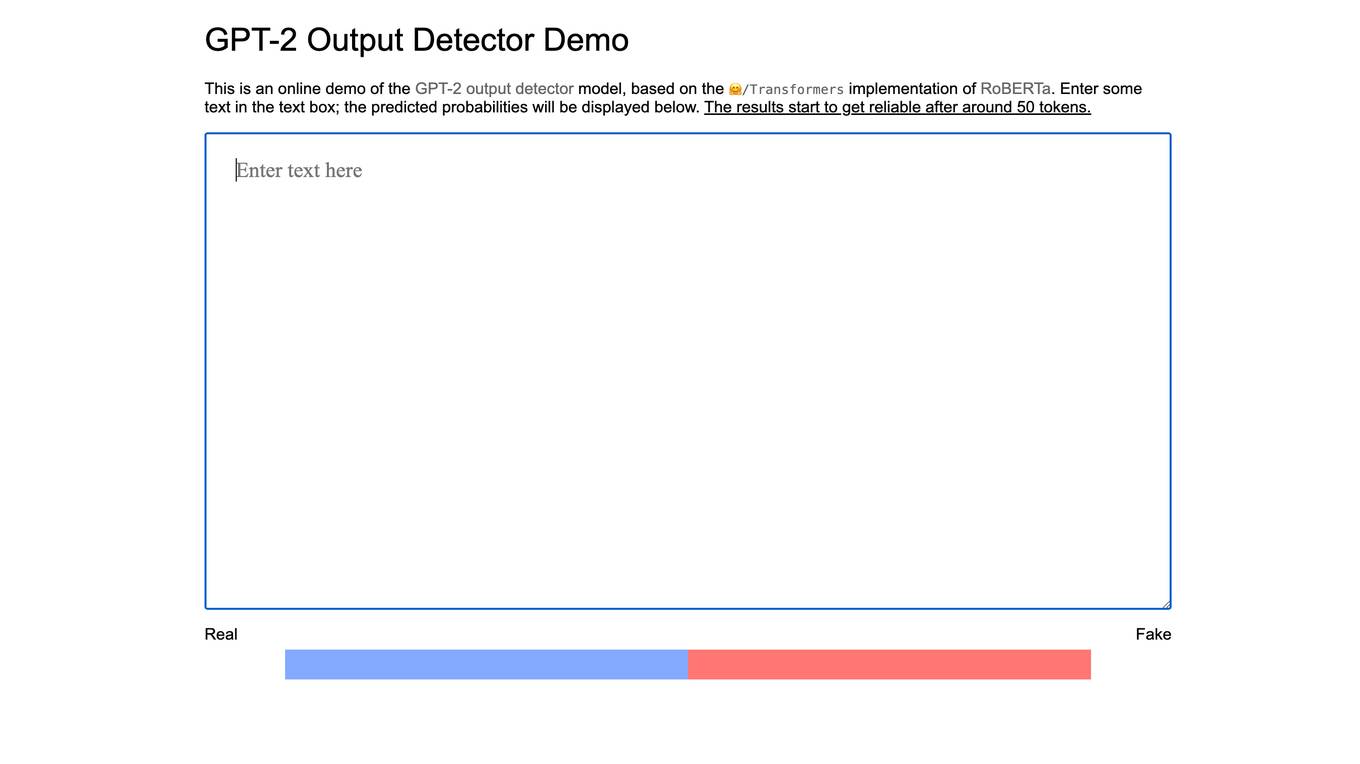
GPT-2 Output Detector
The GPT-2 Output Detector is an online tool that helps users identify whether a given text was generated by the GPT-2 language model. The tool is based on the RoBERTa implementation of Transformers, a popular natural language processing library. Users can enter text into the text box, and the tool will predict the probability that the text was generated by GPT-2. The results start to get reliable after around 50 tokens.

WordAi
WordAi is an AI-powered content rewriter that helps you create high-quality, unique content that is indistinguishable from human-written content. With WordAi, you can 10x your content output, extend your budget, and create more content that Google and readers will love.
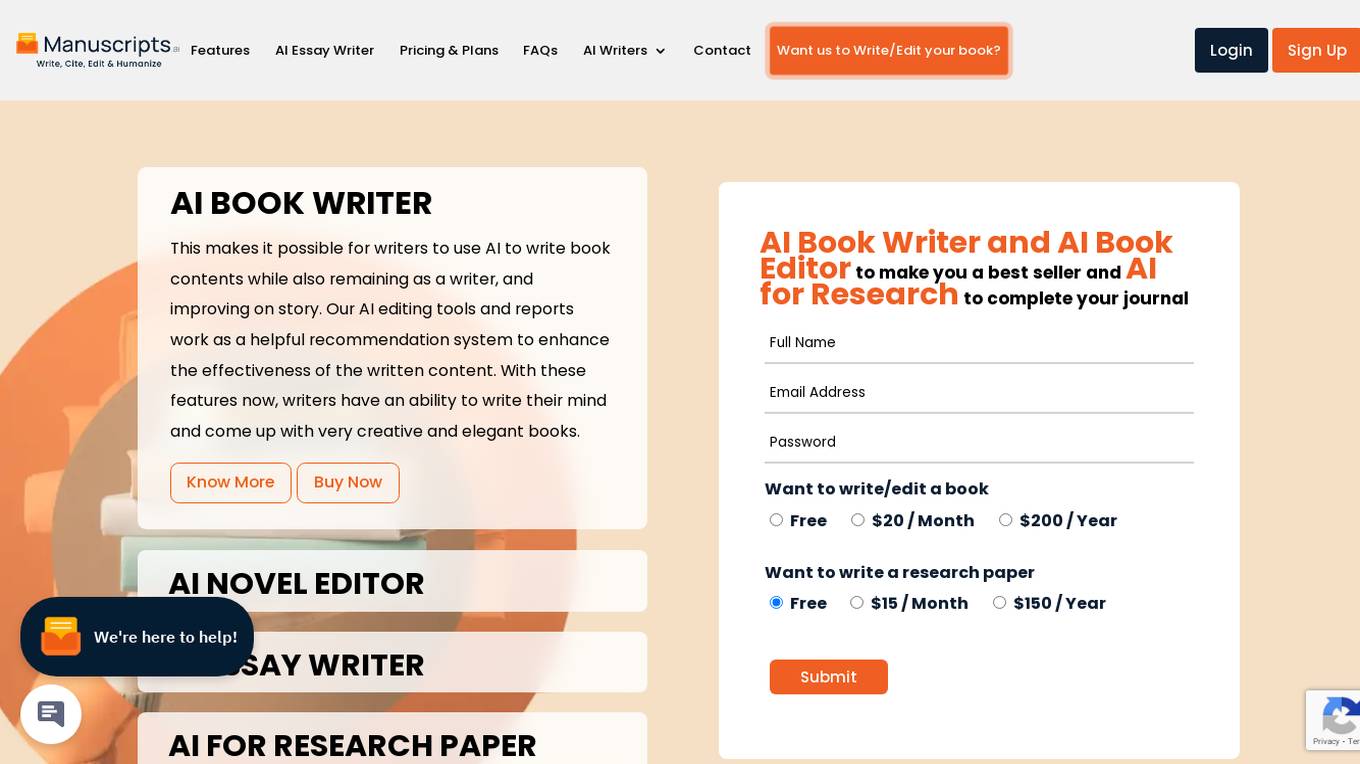
Manuscripts.ai
Manuscripts.ai is an AI-powered platform that offers a suite of tools for writers, authors, students, and content creators to enhance their writing process. The platform provides AI book writing, editing, and novel editing services, along with AI essay writing and research paper assistance. With features like AI story generation, AI rewriting, and AI editing tools, Manuscripts.ai aims to help users create high-quality, engaging content efficiently. The platform also offers advanced AI models, such as the Humanizer, to transform AI-generated content into authentic human writing. Manuscripts.ai is designed to support writers in various genres and industries by providing innovative solutions for content creation and editing.
1 - Open Source AI Tools
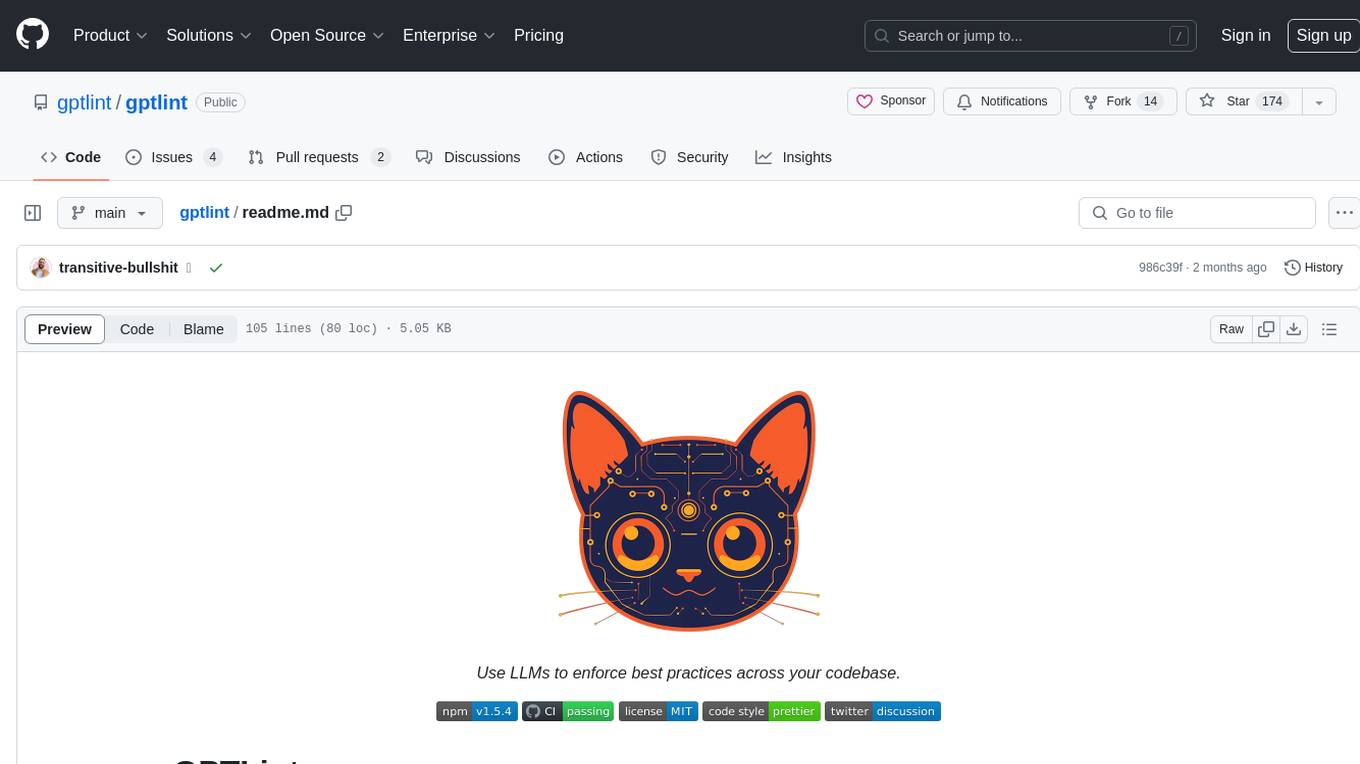
gptlint
GPTLint is a tool that utilizes Large Language Models (LLMs) to enforce higher-level best practices across a codebase. It offers features such as enforcing rules that are impossible with AST-based approaches, simple markdown format for rules, easy customization of rules, support for custom project-specific rules, content-based caching, and outputting LLM stats per run. GPTLint supports all major LLM providers and local models, augments ESLint instead of replacing it, and includes guidelines for creating custom rules. However, the MVP rules are currently limited to JS/TS only, single-file context only, and do not support autofixing.
20 - OpenAI Gpts
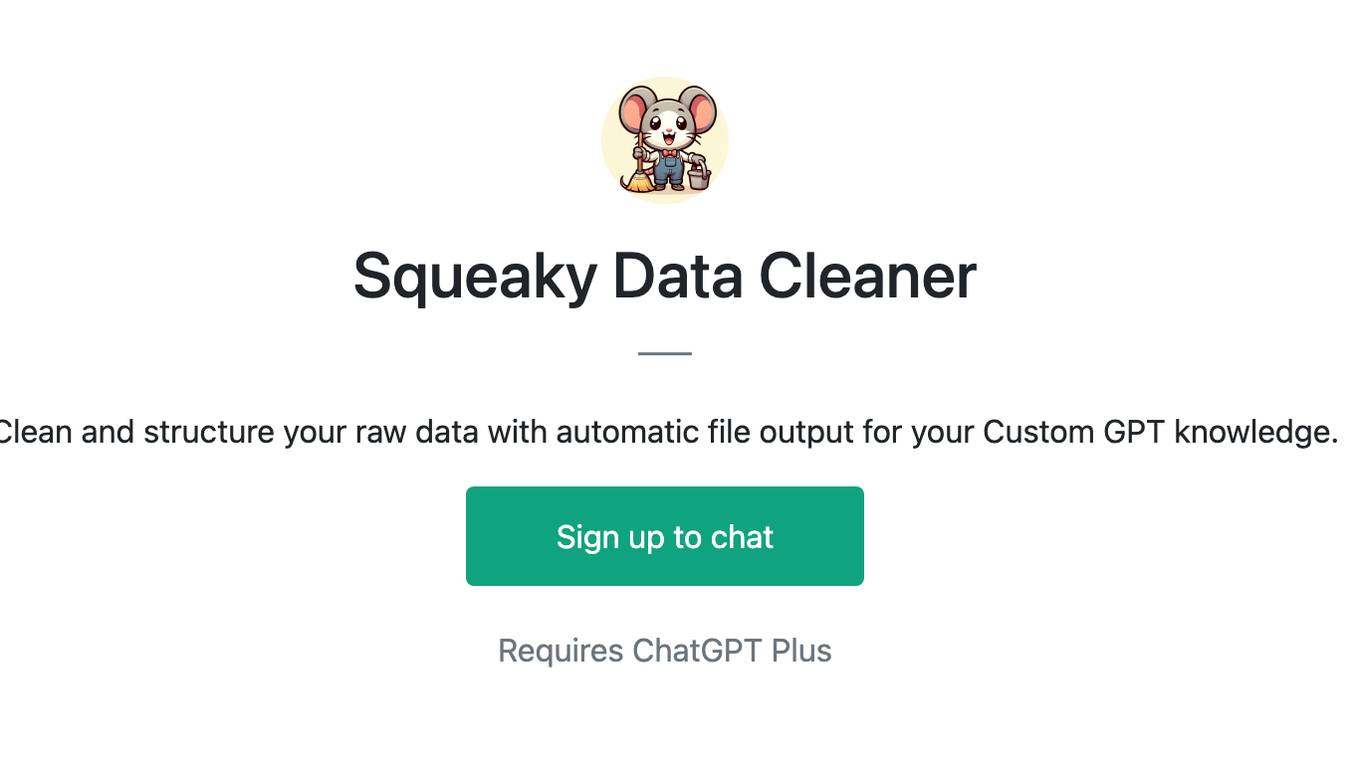
Squeaky Data Cleaner
Clean and structure your raw data with automatic file output for your Custom GPT knowledge.
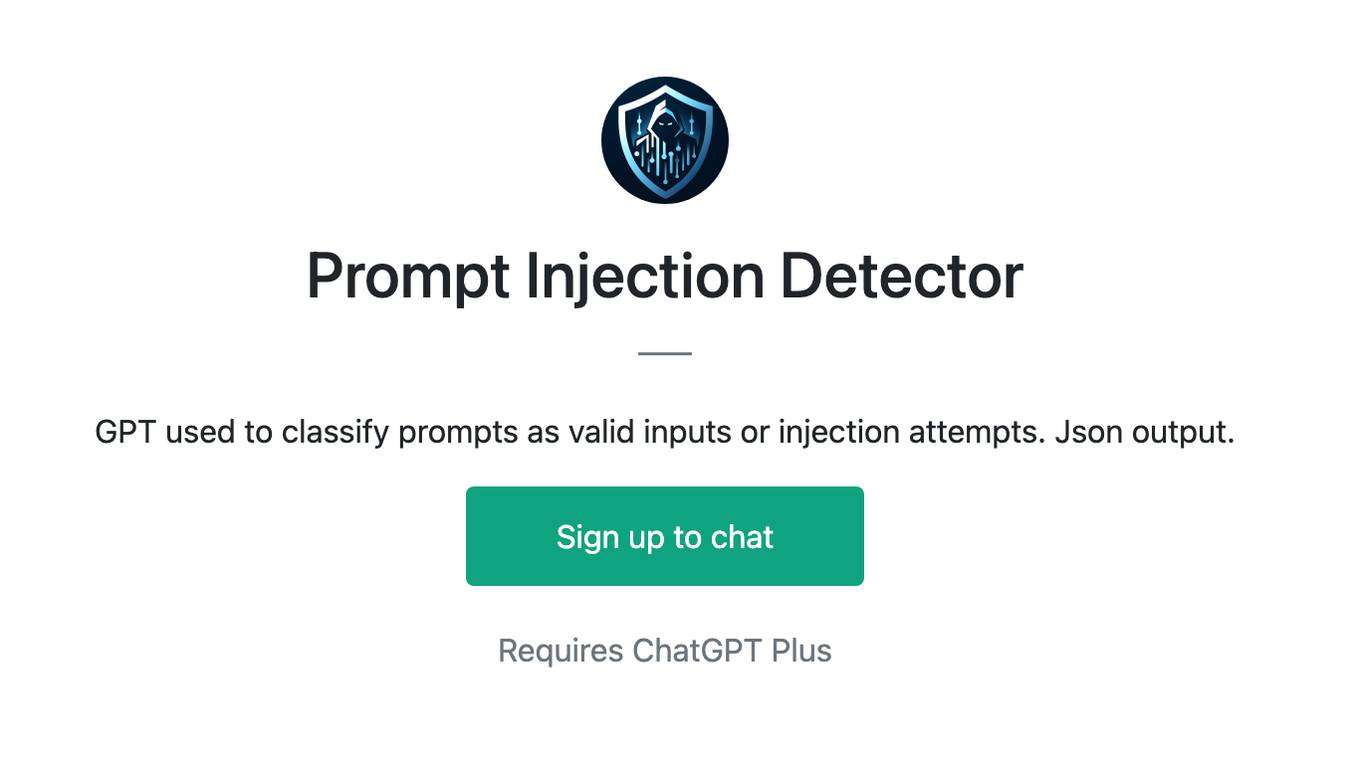
Prompt Injection Detector
GPT used to classify prompts as valid inputs or injection attempts. Json output.
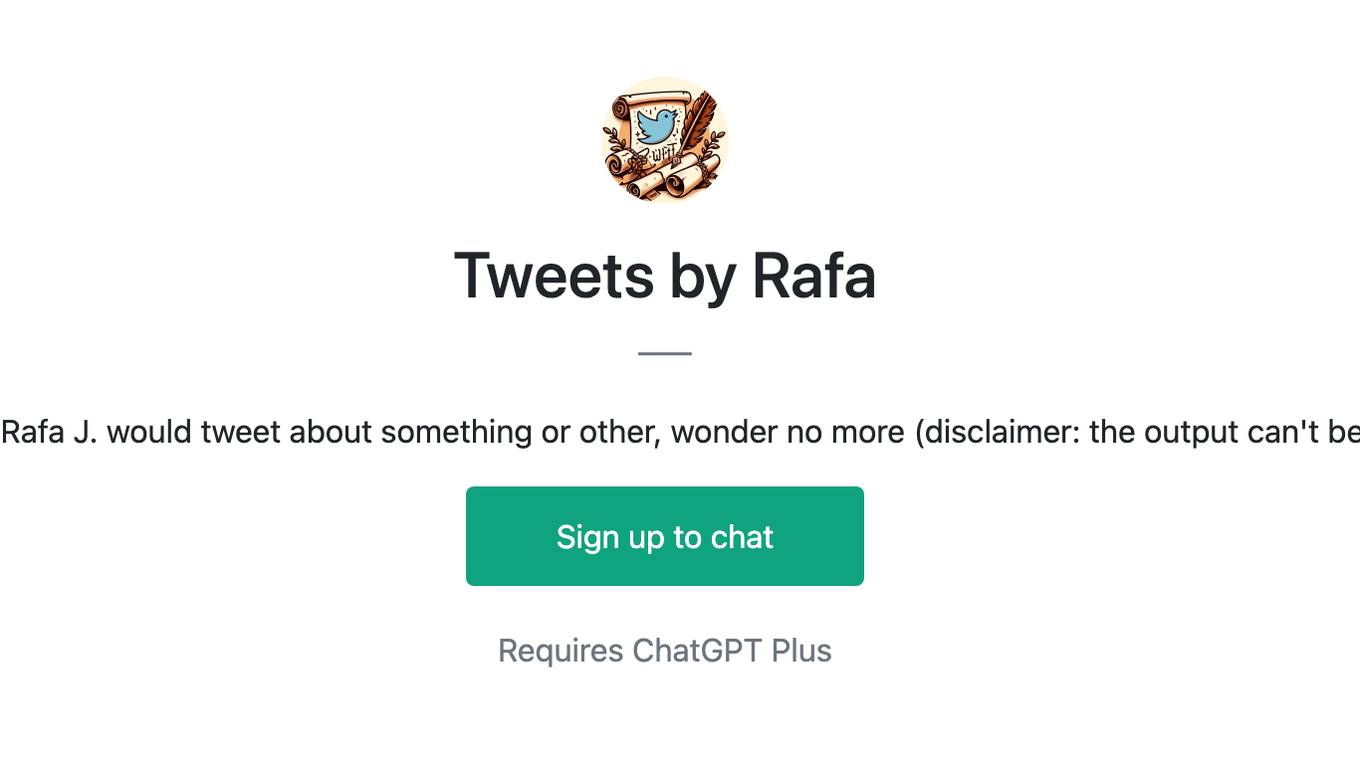
Tweets by Rafa
If you ever wondered what Rafa J. would tweet about something or other, wonder no more (disclaimer: the output can't be attributed to him, obvs.)
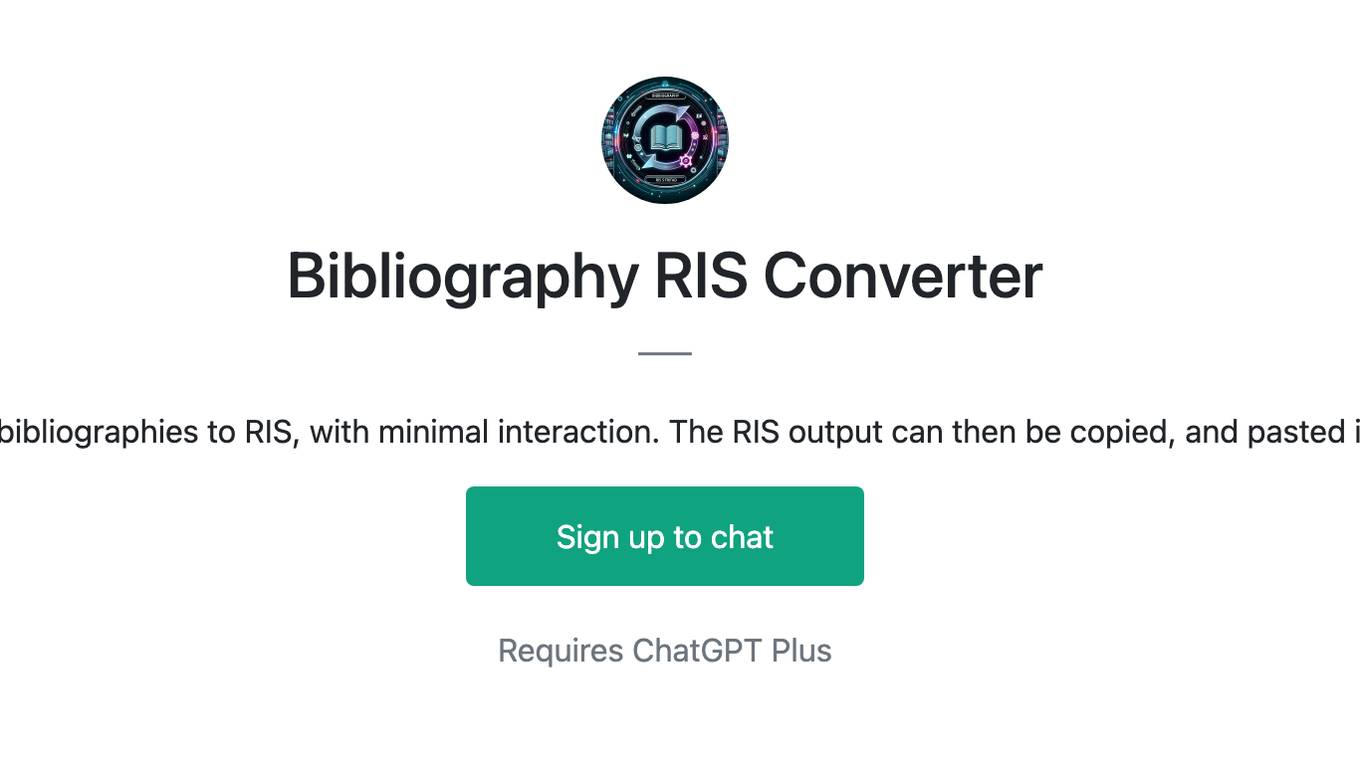
Bibliography RIS Converter
Professionally converts academic bibliographies to RIS, with minimal interaction. The RIS output can then be copied, and pasted into Zotero using Ctrl-Alt-Shift-I.
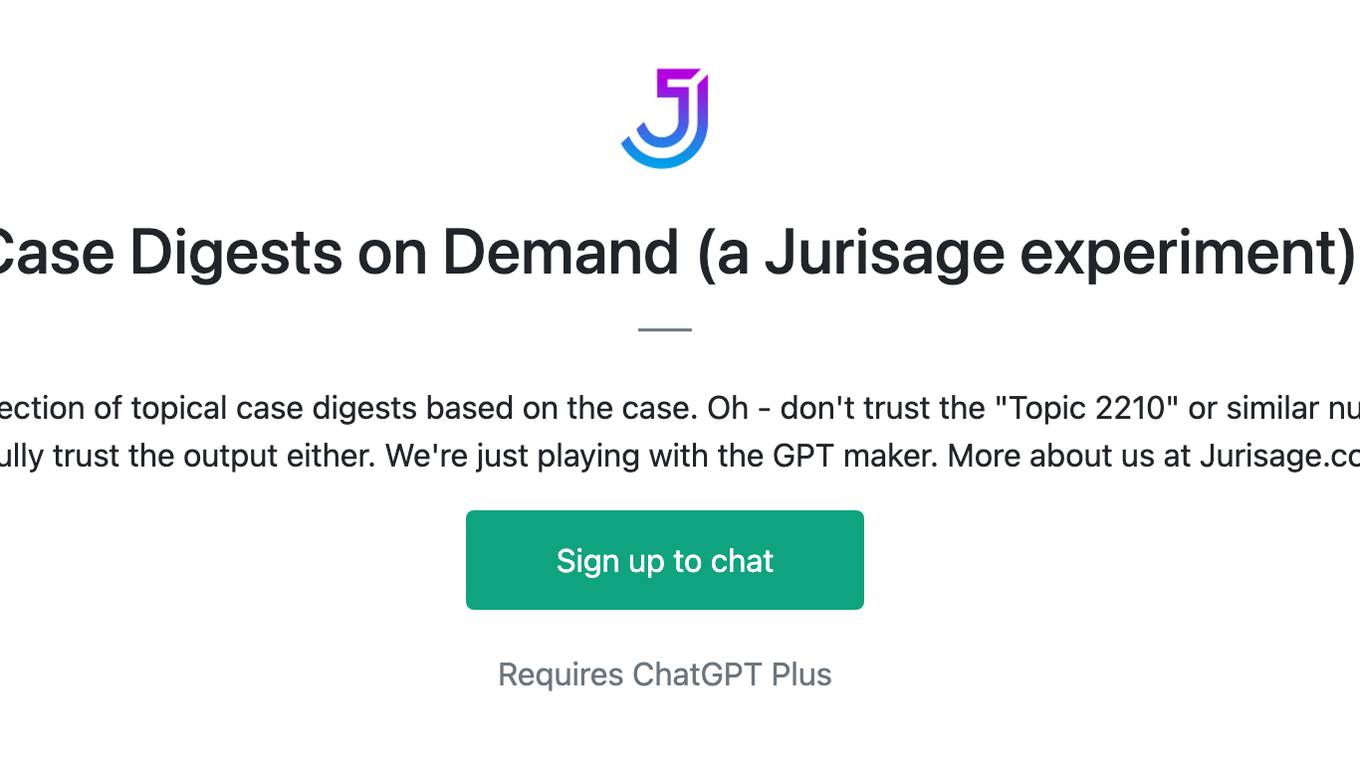
Case Digests on Demand (a Jurisage experiment)
Upload a court judgment and get back a collection of topical case digests based on the case. Oh - don't trust the "Topic 2210" or similar number, it's random. Also, probably best you not fully trust the output either. We're just playing with the GPT maker. More about us at Jurisage.com.
